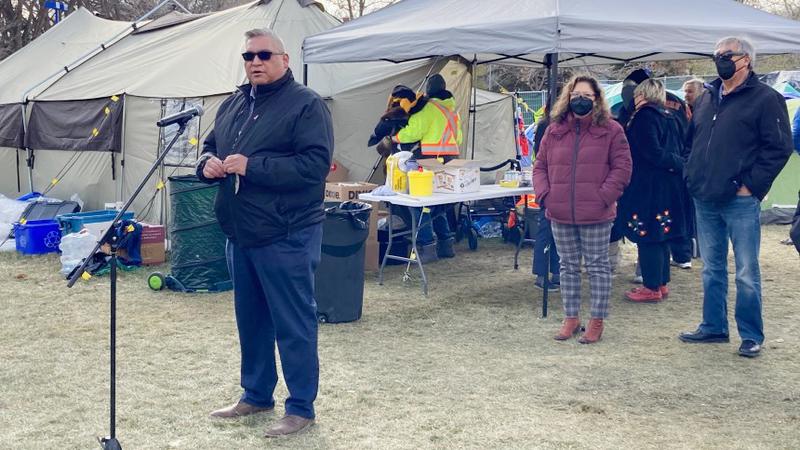
Agency says Camp Marjorie close to moving to indoor site as FSIN calls for stronger action
An agency that serves those living in a homeless camp in Pepsi Park expects the encampment will be able to move indoors within a week.
“There is an interim facility that we are looking at that we’re hoping to be operational within seven days,” said Erica Beaudin, executive director of Regina Treaty Status Indian Services (RTSIS).
During a news conference Monday morning hosted by the Federation of Sovereign Indigenous Nations (FSIN), she said the location of the site has not been confirmed yet.
“We’re part of the discussion but it will be the city that is taking on the responsibility of the facility,” Beaudin said.


